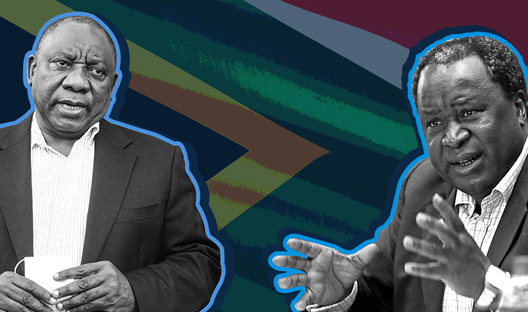Get Focus insights straight to your inbox
The SONA detailed the ongoing drive to repair and rebuild the economy’s fundamentals, while the pace of its vaccine rollout, and switch in vaccines to overcome the variant, supports its 2021 GDP outlook of 2.9%.
The priorities to stimulate growth as per the SONA “are a massive rollout of infrastructure throughout the country, a massive increase in local production, an employment stimulus to create jobs and support livelihoods, the rapid expansion of our energy generation capacity,” said President Ramaphosa.
These are all longer-term objectives and will take a number of years to yield their anticipated outcomes, while a quickening in economic activity can be achieved earlier by improving the ease of doing business, particularly by increased use of electronic systems.
Already SA has introduced e-filing and the BizPortal platform, both of which reduce interfacing with state bureaucracy and speed up the processes, and reducing regulatory inefficiencies speeds up both investment and entrepreneurship, leading to faster growth and employment.
A fully online, functional business incorporation processes reduces the time taken to start a business, an area which SA had performed poorly in the past and is catching up in, although electronic systems need to be rolled out substantially further to aid private sector businesses.
Investec's Chief Economist unpacks SONA on Business Day Spotlight
Listen to podcast
Business Day host Mudiwa Gavaza is joined by Annabel Bishop, chief economist at Investec, together with Dawie Roodt, chief economist at Efficient Group for a comprehensive examination of the speech.Bishop and Roodt give their initial impressions of the President’s remarks before discussing the implications for business and electricity generation.
SONA light on new policy information and anti-corruption measures
Indeed, the SONA was very light on new policy information, and disappointing on others where there could have been quicker movement, such as allowing the private sector to immediately add electricity to the grid, and a requirement for faster regulatory reform.
The SONA prioritises defeating the coronavirus epidemic in SA, then accelerating economic recovery, thirdly reforms to create jobs and drive inclusive growth, and lastly fighting corruption and strengthening state capacity. Detail on the latter was slim however.

Get all Investec's insights on the latest Budget Speech and SONA
Our economists, tax experts, personal finance and investment experts unpack what the latest fiscal measures mean for income, savings and daily expenses of individuals and businesses.
Revenue overrun can fund vaccination roll-out, without tax increases
South Africa currently is seeing around 2 500 daily new cases of Covid-19 as the second wave has subsided, but, with the first half of Q1.21 drawing to a close, it risks a third wave. The switch to vaccines countering the new variant 501Y.V2 quickens the country’s response.
With this variant (501Y.V2) now dominant in SA, the rollout will begin with the Johnson & Johnson vaccine instead of the AstraZeneca doses which are already in the country, with the possibility still that SA will begin vaccinations in February under its rollout timeline.
Consequently, we do not see a need yet to reduce the probability of the up case back to 1% from its recent lift to 2%, or the severe down case to 10% from its recent move to 9%, as the quick adaption and continuation with the rollout strategy is positive.
Furthermore, we continue to believe that the revenue overrun, with collections so far looking to exceed the estimated level for the current fiscal year, will be sufficient to fully fund the full vaccine rollouts programme, and allow for the avoidance of significant tax increases.
That is, the revenue collection estimate for the 2020/21 fiscal year was revised down to R1.3 trillion, from 2019/20’s R1.5 trillion and this is the main reason for the potential overcollection but should allow some adjustment for fiscal drag now - another positive.
However, this revenue overrun is likely to be below R100bn, and could well be closer to R50bn, funding the vaccine rollout, adjustment for fiscal drag and reducing some pressure on fuel levies, sin taxes and small indirect taxes, but not providing for largess on expenditure.
Private sector to drive job growth
The SONA also focused on the impact of Covid-19 on the economy, noting that in Q3.20 GDP was 6% smaller than in Q4.19, and Q3.20 still had 1.7 million jobs less than in Q1.20. Structural reforms quicken economic growth when they reduce regulator inefficiencies.
“Operation Vulindlela is focusing on reforms in the electricity, water, telecommunications and transport sectors, … visa and immigration regime,” said President Ramaphosa.
“On jobs government promises to support employment for as long as it is necessary while the labour market recovers, even as we work to promote stronger and more resilient growth in the private sector,” he said.
The President also acknowledged that “(t)he largest numbers of jobs will be created by the private sector in a number of industries as the economy recovers.” The recent increase in the minimum wage may see some jobs lost as many small business and households are fragile financially.
The Covid-19 TERS benefit has been extended until 15 March 2021 only for those sectors that have not been able to operate, and “the period for the Special Covid-19 Grant of R350 by a further three months,” explained President Ramaphoa.
This provides some support to those afflicted by the lockdowns on economic activity, but more substantial support would be gained by a faster growing economy than the likely 2.9% this year, and so more regulatory improvements are needed to improve the ease of doing business.

